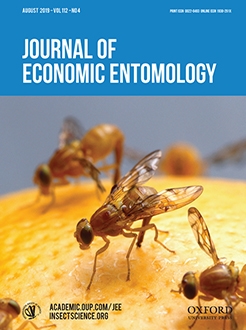The sugarcane aphid Melanaphis sacchari (Zehnter) (Hemiptera: Aphididae) has emerged as a potential threat to sorghum (Sorghum bicolor (L.) Moench) production in the United States. Since the late summer of 2013, finding and advancing M. sacchari-resistant germplasm has been a priority for all stakeholders involved. We evaluated 23 sorghum genotypes for resistance to the sugarcane aphid by testing for tolerance, and antixenosis. In addition, nine sorghum germplasm were evaluated for the expression of antibiosis. Free-choice and no-choice tests were conducted to explore the functional categories of resistance. Levels of resistance to M. sacchari were compared with the known resistant ‘TX 2783′ and the susceptible ‘KS 585′. Sorghum entries AG1201, AG1301, W844-E, and DKS 37-07 were identified as expressing tolerance, antibiosis, and antixenosis, while H13073 expressed antibiosis and GW1489 expressed both tolerance and antibiosis. These resistant sorghums identified during this study will have a significant impact on reducing economic damage from the sugarcane aphid infestations.
How to translate text using browser tools
11 April 2019
Categories of Resistance to Sugarcane Aphid (Hemiptera: Aphididae) Among Sorghum Genotypes
Sulochana Paudyal,
John Scott Armstrong,
Kristopher L. Giles,
Mark E. Payton,
George P. Opit,
Ankur Limaje
ACCESS THE FULL ARTICLE
It is not available for individual sale.
This article is only available to subscribers.
It is not available for individual sale.
It is not available for individual sale.

Journal of Economic Entomology
Vol. 112 • No. 4
August 2019
Vol. 112 • No. 4
August 2019
antibiosis
antixenosis
Melanaphis sacchari
sorghum
tolerance




